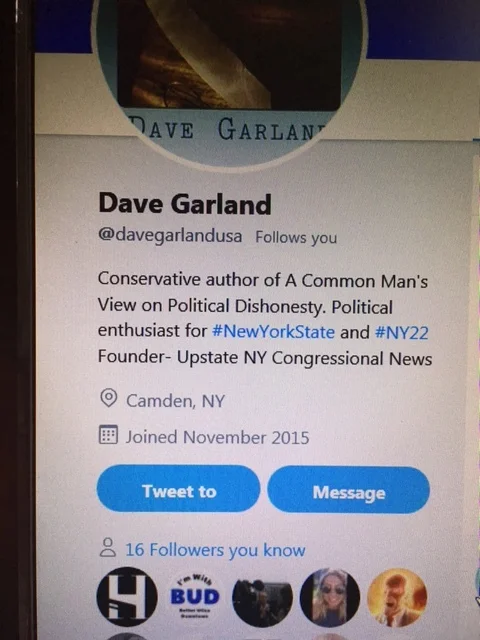What the 2016 World Series Taught Us About the Presidential Campaign By Luke Perry
Editor's Note: It's with sadness I honor the memory of Jerry Mileur, a beloved colleague, teacher, and mentor to many in Political Science, who recently passed away. I will forever be grateful to Jerry for taking a chance on me; a moment that has infinitely changed my life for the better.
Jerry was a contributor to this center with his series "Quick Pitch." The title drew on his love for baseball and politics. The pennant race, which now pits our two favorite teams against each other (the Cardinals and Cubs), will not be the same. Fittingly, they are about to open a weekend series with a day game at Wrigley.
I turned to Jerry's inspiration last summer as a novice political correspondent creatively trying to make sense of a bitter presidential campaign. I republish this now in celebration of his memory, a celebration I will seek to continue for the rest of my career and my life.
“I went to college to play baseball and discovered politics” was the first line of my personal statement in applying to the Ph.D. program in Political Science at the University of Massachusetts. It just so happened that the Department Chair, Jerry Mileur, now Professor Emeritus, formerly owned a minor league baseball team and told me that anyone who wrote that was “all right” with him. Jerry went on to be a great mentor and advocate for me. We saw eye-to-eye on most everything, but which baseball team to root for. He is from Southern Illinois and grew up a Cardinals fan. I am from Chicago and grew up a Cubs fan.
This World Series has been a great example of how Midwestern baseball rivalries can teach us many things about life and politics. This intensely close fall classic was not an escape from the stress and frustration of the presidential campaign, my professional focus since becoming a Political Scientist myself. Even better, however, was how both teams provided a remarkable alternative to handling unimaginable pressure emanating from brutal competition.
For starters, baseball demands humility, as anyone who has played it knows. Batters who fail to get a hit seven out of ten times are considered great. Cy Young, the game’s most iconic pitcher, holds the record for both wins and losses. This helps explain why players are notoriously superstitious and ritualistically seek favor from “the baseball gods.”
Baseball, like campaign politics, is a team sport, but with certain individuals garnering disproportionate attention for exceptionally good and bad reasons. The players who made errors, like Cub’s second baseman and fielding sensation Javier Biaz, patted themselves on their chest, expressed remorse, and clearly felt badly for letting their teammates down, not looking foolish or weak.
Baseball is also a sport of endurance. The season begins with spring training camps in Arizona and Florida, lasts all summer, and concludes in early November, like the election. This World Series between my beloved Cubs and the Cleveland Indians included two franchises who had not won a championship since 1908 and 1948 respectively. This demands patience of players and fans alike.
One cannot help but feel compassion for Corey Kluber, the Cleveland ace, who pitched better than nearly everyone else in history throughout his first playoff starts, only to come up short in Game Seven, the biggest of his life. One also cannot help but feel compassion for Aroldis Chapman, Chicago’s closer, the game’s best, who wept in the dugout after giving up a game tying home run a few outs shy of victory.
A model of sportsmanship shined beneath these major story lines in less dramatic ways. Much has been made of Cub’s outfielder Kyle Schwarber who missed the whole year after a knee injury, remarkably got himself in game shape, and was a main contributor to the offense in the World Series. Less noted was how Schwarber slid hard into the legs of Cleveland Shortstop Francisco Lindor, as a play required, and immediately popped up in concern and inquired if he was OK. This beautiful display of genuine empathy within heated battle displayed how defeating an opponent rightly differs from destroying an enemy.
In the final out this season, Kris Bryant fielded the ball with a childlike smile on his face. Bryant, who went on to be the National League Most Valuable Player, was asked about the significance of this championship. His answer was unlike most. Bryant explained how he had won several individual awards for his play, but never, throughout his career, had his team ever won anything. This was most meaningful to him.
These lessons of humility, remorse, endurance, selflessness, compassion, honesty, empathy, joy, and community, are what I found most engaging and worthwhile in this historic series. I wish I could say the same about this historic presidential election. In this way, the games did provide an escape of sorts for me.
While I will greatly enjoy the Cubs' championship for a long time, I cannot help but recall all the kind people of Cleveland I met during my time there as a journalist covering the Republican National Convention. On occasion the conversation would turn to baseball. Like Jerry and I, we rooted for different teams, but in the end, both sides hoped for a good game, and whether in victory or defeat, wished the other side well because we could relate to their struggle too.
Luke Perry is Chair and Professor of Government at Utica College.





